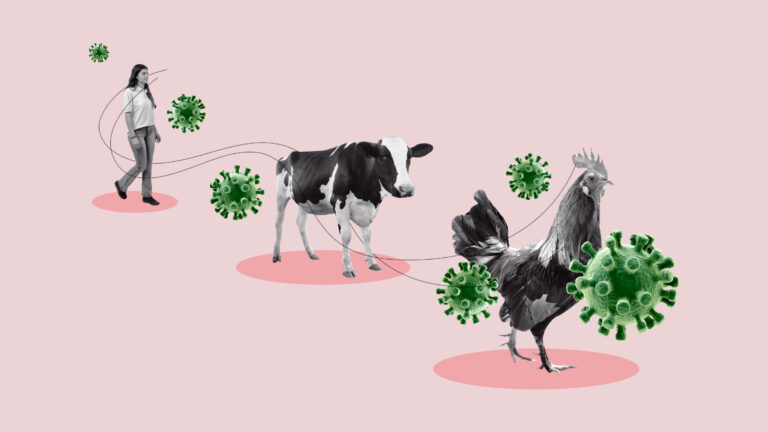infectious disease
Is it time to freak out about bird flu?

Christine Kao/STAT
If you've been reading media coverage of the whole bird-flu-in-cows situation across the U.S., you may have noticed a wide spectrum of urgency or panic in the tone of experts quoted. Some are clearly on edge, while others may want to play things down. So what's the truth?
The truth, as STAT's Helen Branswell explains it, is that when it comes to this virus, we're in scientific limbo. There's currently no way of knowing all the changes H5N1 would need to undergo to trigger a pandemic, or whether it is capable of making that leap.
Helen has been covering H5N1 for two decades. "I've done plenty of worrying about it over the intervening years," she writes. "I no longer assume every unwelcome thing the virus does means we're on the precipice of a pandemic. Still, I have never felt that this virus is something I can safely cross off my things-to-watch-closely list."
Read more for Helen's measured, informed, illuminating take.
one big number
$18 million
That's how much pharmaceutical company Sanofi is donating to three historically Black medical schools to support work increasing diversity in clinical trials, per an announcement today. The three institutions — Howard University College of Medicine, Meharry Medical College, and Morehouse School of Medicine — will use the funds to hire research staff, create training programs, and build services like online chat features and pharmacy upgrades. A representative from Sanofi told STAT that the company is not disclosing the specific allocation to each institution at this time.
Read some of STAT's coverage on diversity in clinical trials, including a special series by STAT's Angus Chen on diversity in cancer trials. And if you haven't already, listen back to the "Color Code" podcast. We have one episode on why the U.S. is falling short on diversity in trials, and another on the 1910 Flexner Report that closed five out of seven historically Black medical schools.
big names
Listen: Mark Cuban has no doubt he can disrupt health care
Mark Cuban came on the "First Opinion Podcast" this week to talk with STAT's Torie Bosch and Matthew Herper about pharmacy benefit managers, the 2024 presidential campaign, and how the health care industry should work. Health care "is literally the easiest industry to interrupt, to disintermediate, that I've ever been involved with," Cuban said.
Cuban also explained his rationale for backing Harris over Trump when it comes to pharmaceutical reforms. "I don't think she's as transactional" as former President Donald Trump, he said. Listen to the podcast wherever you get your podcasts, or right on the STAT site.


No comments